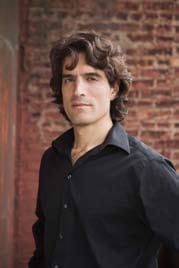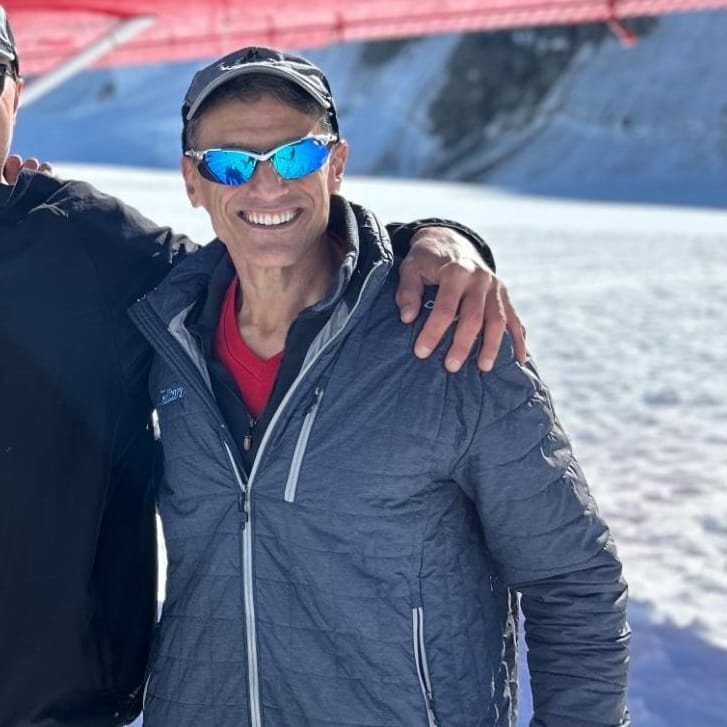“I’m probably the only person who went to Wharton on a literary impulse.”
Blame Michael Lewis. He’s the reason I went to Wharton.
It was 1992 when I stumbled upon Liar’s Poker and decided I would be a bond trader. Lewis’s description of the trading floor reminded me of a locker room, something I knew a lot about, unlike bonds, about which I knew nothing. Wharton seemed like a good first stop. This plan was pure hubris, of course, but I was too ignorant to know it. I was living in Aspen, CO, as a writer with a wife and child to support. I figured my Wall Street adventure might make me a dollar or two and, whatever happened, I’d get a book out of it. I’m probably the only person who went to Wharton on a literary impulse.
It turned out that being a writer was good training for business school, and for business itself. Nicholas Delbanco, who ran the graduate writing program at the University of Michigan, instructed me to throw away my first million words. Even after that, he told me, there were no guarantees. I therefore arrived at Wharton expecting to work hard against long odds. I wasn’t disappointed. A few fellow classmates and I spent the fall Fridays of our first year driving to New York (against School wishes) to pound on the doors of whatever trading floor might let us in. We were older students who hadn’t worked in finance, so we wanted an edge. We were often shut out, but not deterred. As a writer, I was inured to rejection, and my friend (a former Marine) to hardship. His aging Chrysler was our locker room, a place where we discussed strategy, traded war stories and changed in and out of our suits, which were our uniforms for those Fridays.
That winter I found myself traipsing off to the Philadelphia office of Goldman Sachs to interview for a summer internship in New York. I was one of more than 200 Wharton first-years vying for two spots, and was certainly an unusual candidate. One guy looked at my resume and laughed. Somehow, I got the job.
One summer Friday as hot and sultry as they get, Goldman loaded us interns onto a bus and drove us two hours north of the city to play paintball in the woods outside Newburgh. Several other interns and I made sure to be on the team opposite from the program leader. We literally wanted to take a shot at him. It was the best work day I ever had, moved as we were from the locker room to an actual field for once. I realize I’m taking this metaphor too far, but I was told later that some interns were dismissed from serious long-term consideration for not being sufficiently aggressive at paintball. Even today it seems believable.
Lehman had declined even to interview me for a summer job, but had been trying to hire me ever since I’d gone on to do well at Goldman. At my final Lehman interview, the head of the government bond desk asked whether I had played competitive sports. Luckily, the answer was yes (three sports in high school, ski racer in college). The next day I had an offer.
I spent five years at Lehman. I left when a movie sale from my first book gave me a bit of financial breathing room. This was not the plan, or so I thought at the time. I had intended to make some real money on the Street (I never did), but being a trader wasn’t what I really wanted to be. I wanted to write. Oddly and inevitably, this desire got me to the Street, and it got me out. And I did get that book out of the experience (All I Could Get, published in 2002). Some things work out just as you plan.
Now I’m back in Aspen, where many who stuck it out on Wall Street have retired with their fortunes. There is, of course, a difference between doing what you must and what you love, but it is surprising how the former can become the latter. Virtually every retired person I’ve talked to misses at least some aspect of work. “I miss being at the center of things,” one ex-investment banker told me, “working with smart and determined people.” This is a common refrain, and it brings up an interesting point: We’re often told to build friendships to further our careers, but perhaps our careers are most important when they further our friendships.
Just this week I got a beer with Tom Bernard. Like me, Tom has published a novel (Wall and Mean), worked at Lehman and lives in Aspen. But you probably know him from Lewis’s Liar’s Poker, in which he was the book’s most memorable character, the Human Piranha.
As we sat at the bar, I asked him if he missed the trading floor. He replied: “I miss the locker room.” That pretty much says it all.
Scott Lasser, WG’95, is the author of the novels Battle Creek, All I Could Get and The Year That Follows.


























